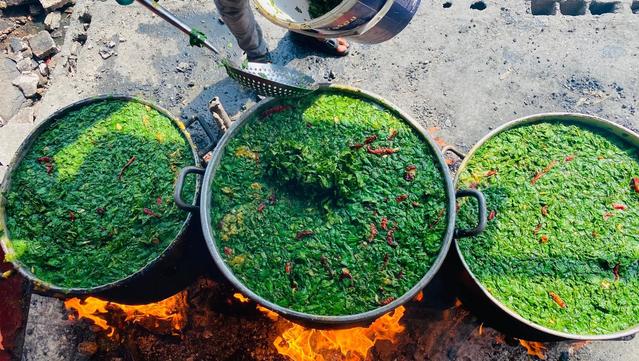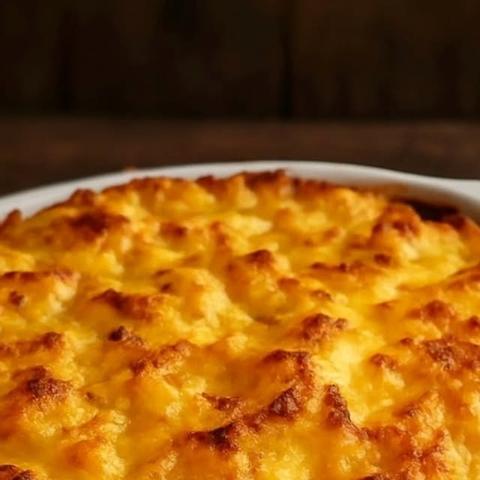✨ Update from Gaza Soup Kitchen ✨
November 3, 2025, by Gaza Soup Kitchen, Beneficiary
"Hello, and welcome — you have been missed. I hope you’ve been well. Let’s dive into an update and share a snapshot of the #GazaSoupKitchen’s work in Gaza.
We currently operate six kitchens serving the public — two in #KhanYounes, and four in the stretch between #AlZawaydah and #DeirElBalah. Additionally, we have a dedicated location in the #AlNaser neighborhood of Gaza City that prepares meals for hospitals.
Our work is supported by three mobile teams, each with a specific mission:
The first team visits hospitals, delivering fresh produce, care packages, clothing, and sometimes baby formula and diapers for newborns.
The second team goes directly into makeshift camps, showing up with whatever they can source — whether food or clothing — to meet the immediate needs of families living in extreme conditions.
The third team serves dinner at #AlShifaHospital, bringing baked goods and meals for about 100 patients every day.
Recently, we pivoted to blanket distribution. So far, we’ve distributed 200 blankets, with 300 more on hand, and our goal is to source at least 1,000 this month, getting them directly to families. Alongside blankets, we’ve added hygiene kits to support families’ basic needs.
Two days ago, we opened registration for families in need of food parcels, and we’ve already signed up 15,700 families across Gaza. Our goal is to distribute these within two and a half weeks. Each food parcel costs around $27, which covers staples; prices fluctuate between $60 and $179 depending on availability, making it especially challenging for families with no resources — which, unfortunately, is the case for most.
This is a massive effort, requiring a dedicated and resilient team. To enhance registration and distribution, we expanded the pickup locations from three to six, covering areas from #Rafah (#Mawasy) to the north of #GazaCity, with deliveries starting tomorrow. A guiding principle for us is simple: every dollar goes directly to helping people in Gaza. We don’t let bank accounts dictate our work; we tackle urgent needs head-on, and we’ve been incredibly fortunate to have your support.
Beyond food, we continue to run our classroom with Ms. Fatema, bringing children back to learning and growth. We also added a Play Therapy program, held every other day, helping 25 children engage in play, snacks, singing, and moments of pure childhood joy — something they desperately need to feel safe and free again.
On a broader note, I recently spoke in Philadelphia to a group of elderly Jewish citizens, a deeply humane and uplifting experience. Unlike my usual audiences of younger activists, this mature audience engaged with sincerity and care, reminding me how dialogue across generations and communities can be meaningful and inspiring.
On a personal level, expanding our work comes with emotional weight. Every week, thousands of families write to us asking for help. When they don’t hear back immediately, frustration turns into anger and, sometimes, insults. I understand their pain deeply, but processing it adds an extra layer of grief. And yet, we keep pressing forward, because the fire to serve and protect the vulnerable never goes out.
Thank you for being here and standing with us. Many have stepped away during the recent ceasefire, taking a chance to rest, but for us, the work cannot pause. Families remain hesitant to return to their homes in #BaitLahia, where the streets feel eerie and unsafe. Violence continues to flare from Israeli forces and some of their proxies who still appear in the area. The trauma lingers, the fear is real, and yet the people of Gaza persist.
It is far from over — and that’s why we keep showing up, delivering food, blankets, care, and hope. Together, we light a small beacon in the midst of unimaginable darkness.
P. S. We remain active in delivering clean drinking water trucks to different communities. We average eight to ten trucks daily."
Donate:
https://www.gofundme.com/f/Hot-meals-in-gaza-daily
#NorthGaza #GazaAid #GazaFundraisers #FreePalestine #Fundraisers #FoodIsLife #WaterIsLife #GoFundMe #BeitLahiya #BaitLahiya #KhanYounes #Palestine #Genocide #Starvation #IsraeliWarCrimes #NorthernGaza
Remember #ChefMahmoud
#HumanRightsAreNeverWrong #IsraeliWarCrimes #BibiIsAWarCriminal

